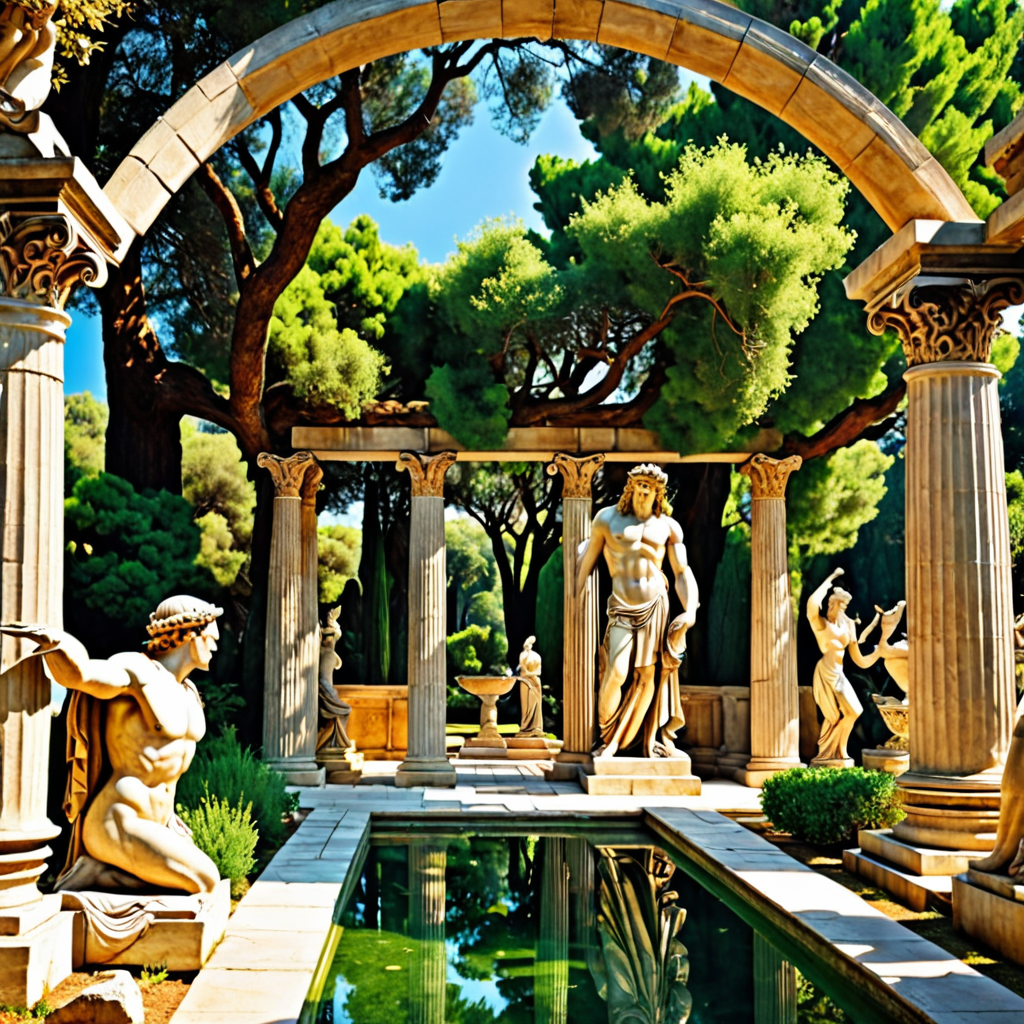The Symbolism of Gardens in Greek Mythology
Introduction
In Greek mythology, gardens hold deep symbolic significance, often representing various themes such as fertility, immortality, and harmony. These lush landscapes play pivotal roles in many tales, shedding light on the complex relationships between gods, mortals, and the natural world.
The Garden of the Hesperides
One of the most famous gardens in Greek mythology is the Garden of the Hesperides, tended by nymphs and home to the golden apples. These magical fruits were believed to grant immortality to those who consumed them, symbolizing eternal life and the elusive quest for everlasting youth.
The Gardens of Adonis
The Gardens of Adonis represented the cycle of life, death, and rebirth. Adonis, a handsome youth loved by Aphrodite, was mortally wounded while hunting. The plants grown in these gardens, though beautiful, would quickly wither, mirroring Adonis’ journey from life to death and back again.
The Garden of Alcinous
In the mythical land of Phaeacia, the Garden of Alcinous was envisioned as a paradise of abundance and prosperity. This symbolic garden showcased the wealth and hospitality of King Alcinous, providing a safe haven for Odysseus during his wanderings, representing a place of refuge and restoration.
Conclusion
Greek mythology is rich with vivid imagery, and gardens serve as powerful symbols woven into the tapestry of ancient tales. From gardens of immortality to those of transience, each mythical garden reveals insights into the human experience and the cherished values of the ancient Greeks.
FAQs about The Symbolism of Gardens in Greek Mythology
What is the significance of gardens in Greek mythology?
Gardens in Greek mythology often symbolize various themes such as fertility, abundance, beauty, and the cycle of life and death. They serve as settings for divine interactions and often represent paradise, tranquility, or chaos.
Which Greek myths prominently feature gardens?
One of the most famous gardens is the Garden of the Hesperides, where golden apples grew. Persephone’s abduction by Hades in the Garden of the Gods led to the changing seasons. The sacred garden of the goddess Hera featured golden apples as well.
What do gardens symbolize in specific Greek myths?
In the myth of Adonis, gardens symbolize renewal and rebirth as Adonis dies and is reborn through the cycle of nature. Gardens in the myth of the Labours of Hercules represent obstacles to overcome on his quests.
How do gardens reflect moral lessons in Greek mythology?
Gardens often reflect moral lessons in Greek myths, such as the consequences of greed, temptation, or hubris. They can represent the importance of balance in nature and the harmony between gods and mortals.





